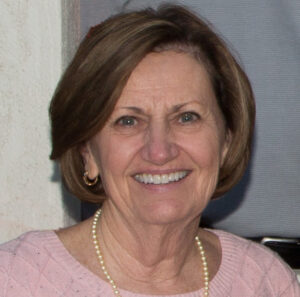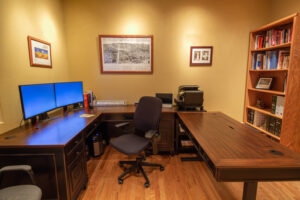I am so excited to bring you another interview in my How They Do It Series. Julie Miller is a Certified Genealogist and a Certified Genealogical Speaker and a fellow of the National Geneaological Society. Julie is a full-time professional researcher, speaker, and writer who lives in Colorado. Those of us who enjoy attending NGS Family History Conferences have a lot to thank Julie for. She was the conference chair of the 2010 and 2012 NGS Family History Conferences, was Chair of the NGS Conference Committee from 2012–2018, and is currently a member of the committee. I was so happy when she agreed to do a How They Do It interview!
 How They Do It: Julie Miller
How They Do It: Julie Miller
How long have you been doing genealogy?
Forty-five years. I was in college and was inspired by the book Roots by Alex Haley.
What’s your favorite thing about being a genealogist?
It makes me feel connected to family I never knew personally. Also, I love that there’s always something new to learn.
What’s your biggest challenge when it comes to organizing your genealogy?
Slowing down and taking my time. Things get missed when I don’t. For example, it’s a challenge to make myself process a document before going on to the next document. I want to keep researching and find all that I can. When I do that, I not only wind up with a mess that takes a lot of time to sort out but I also overlook information that makes it necessary to redo the research. This happens when I’m working on the computer at home and it’s especially hard when I’m researching in a library or repository.
What is your favorite technology tool for genealogy?
Evernote. I’ve always been a pretty organized person so I look for things that will improve my organizing methods, but only if it will save time allowing me more time for research. I’ve been using Evernote for ten years now and it has changed how I research, create a lecture, write an article, etc. Evernote for me is a temporary place for information, I don’t store all of my genealogy there. I use it as I used to use notebooks, except Evernote stores everything in one place and I take it with me everywhere.
If you were starting out new as a genealogist what would you do differently?
So many things but to name just a few:
- I would cite all my sources. Not just those I was sure about but those sources or clues that I used to get to where I wanted to go.
- I would take one question at a time and try to find the answer. I tried to do too much all at once and the result was a lot of partially finished research.
- I would take a beginning genealogy class instead of teaching myself.
- I would join a genealogy society to learn from others and to connect to others with an interest in genealogy. Genealogy can be a lonely and isolating interest even before the internet but it can be more so now.
Do you keep a research log? If so, what format?
Yes. I have a combination research log and plan that is in Evernote. I have the template that I copy when starting a new project.
How do you keep track of clues or ideas for further research?
I have a future research and notes columns in my research plan. I also use Evernote to save ideas.
How do you go about sharing your personal research with cousins or other interested parties?
Private web site that is just for family. I have a skeleton tree on some DNA websites. Other inquiries are handled on an individual basis.
What’s the most important thing you do to prepare for a research trip?
Hands down, a research plan(s). I always take more plans than what I think I can get done. There are times when the information just isn’t there or a problem is solved faster than expected. If you don’t have more to do, precious time is wasted.
What’s your biggest piece of advice to genealogists in terms of organizing their research?
Be consistent. No matter how you choose to organize (and it will be different for each person), write down how you want to organize and consistently stick to your choices. I recommend creating a personal style guide to record the choices selected.
Also, it is so important to research and evaluate different organizing methods before starting. Then you can decide on what’s right for you. Don’t listen to what other people think are the best methods. Their situation and thinking process are not exactly the same as yours and so what’s the best system for them will not necessarily be the best for you.
 Do you have a dedicated space in your home for doing genealogy research? What’s it like?
Do you have a dedicated space in your home for doing genealogy research? What’s it like?
Yes, it is my office. I have an L shaped desk, a standing desk that is height-adjustable, a desktop with dual monitors, printer, scanner, and bookcases.
Do you have anything to add?
If we want our genealogy to stand the test of time and be handed down to the next generation, we have to have it organized. Too much work has been tossed in the trash because descendants don’t have the time or the inclination to organize the research that they have been given.
Amen, sister! So much of what Julie had to say resonated with me; I found myself nodding along as I read her answers. I’ve admired Julie since I heard her speak at the NGS conference in St. Charles, Missouri, back in 2015. Her talk on Civil War Pension Files set me off on a wonderful journey with these records. (She even helped me when I was trying to get my source citation right!) For more information about Julie and her services, check out her website JPM Research. Thank you so much, Julie, for sharing such great advice and for giving us a peek at your spacious, organized research space. (I’m green with envy.)

Great article. I like the idea of a personal style guide
It’s a great idea, isn’t it?